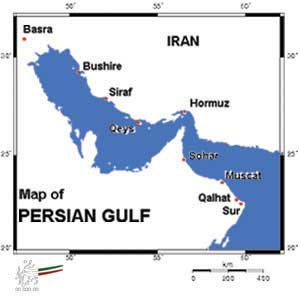Anti-Iranism of U.S. Administration

There three major actors in security affairs of Persian Gulf include: United States, Iran and Persian Gulf Arab states. There are of course important trans-regional countries that stand at the next level of importance. Persian Gulf security state is the resultant of interactions between the three actors mentioned. Most important of these is America, especially after the past few years’ developments.
Regarding this, I will pose three questions and from the answers I will introduce a conceptual framework for better understanding Persian Gulf security developments.
The questions are: what is the nature of U.S. foreign policy in the Persian Gulf? How is anti-iranism manifested in U.S. foreign diplomacy? And how does this anti-Iranism affect Persian Gulf security state?
About the first question, I just point that U.S. behavior can be considered as a mixture of realistic and simplistic moves. United States’ key objective is maintenance and increase of power. This has been intermittently followed by the country in different forms, through Nixon’s doctrine, dual containment or immediate presence in the region. Theories like “constructive destabilization” promoted during Bush Sr. presidency are well-known goals in realpolitik.
No certain level of power will satisfy United States. At every stage the country has followed the goal of increasing its power in the Persian Gulf. In the post-WWII developments, especially after the British left the region, during the Cold War and post-cold war era, U.S. has been after this goal. After the Islamic Revolution of Iran, a fixed element of U.S. foreign policy in Persian Gulf has been anti-Iranism.
Introducing Iran as the enemy can be observed in various forms of U.S. policies. Anti-Iranism shows construction of a certain image in United States’ strategic mentality. This Iran is a threat, all its moves are dangerous and U.S. must stop it.
Now I go the second question which is manifestation of this anti-Iranism. Anti-Iranism has undergone changes with introduction of new concepts. At first, anti-Iranism had an instrumental application in foreign diplomacy for increased presence and arms sale. But this instrument has gradually become an objective too. This means no matter what Iran does, the country is dangerous. I believe in its bilateral interactions with Arab states of Persian Gulf, Iran enjoys warm relations and follows conventional, appropriate models, but these positive aspects are always disregarded since anti-Iranism has become a goal per se. in fact, it has turned into a constituent, a part of U.S. foreign diplomacy structure and the mentality prevalent in the region. Every politician in United States starts from this point. That’s the way Obama’s speech after he officially became Democrats’ candidate should be looked at. The confrontation model and introducing Iran as a threat have become fossilized, though minor shifts occur every now and then.
Persian Gulf security affairs are at the first level a resultant of economic, political, international, regional and national structures. But the role actors play is also important here. The narratives, the way actors perform, speak and construct an image of the others is also important. In fact, U.S. is trying to promote and globalize its own narrative of Iran. This gives importance to security narratives in the Persian Gulf. In general there are three meta-narratives as to Persian Gulf security affairs that I categorize them as: the identity meta-narrative, the interests and security meta-narrative and the hegemony and resistance meta-narrative. Iran is a present in all these meta-narratives, particularly in the second one. In interests and security meta-narrative that concerns state narratives on threats for the Persian Gulf and security building; anti-Iranism is present in different forms.
Rise of Iran as a regional power is one of those stories embedded in this meta-narrative .It is not considered a fortunate event. This new power has to be suppressed. Other narratives promoted by U.S. in the region are the Shiite Crescent, new Safavids and military nature of Iran’s nuclear program. Resurgence of Iran’s revolutionary ideals or Iran’s meddling in Iraqi affairs and its destructive role in this Arab country are all new forms for a 30-year old concept: anti-Iranism.
Regarding the third question I believe United States is the first victim of promoting an evil image of Iran. Strange? But when you talk of Iran as a permanent threat, when anti-Iranism has become a constituent in foreign diplomacy either as an instrument or objective, getting to know Iran becomes difficult.
Of course this has become a challenge also for Iran, since the country has to pay a price to show its real facee. All these show the importance of language and understanding in the contemporary world. Our utterances and the narratives we produce turn into mental presumptions and structures and eventually block the way to security.
If we want to establish security in the Persian Gulf and the world, first of all we need to reach a new understanding, a new narrative free from the current biases. Deconstructing these narratives and creating a new discourse is what counts. What is now considered a threat might be only a subjective feeling. That’s when we feel the need for reshaping the mentality towards security in the Persian Gulf.

